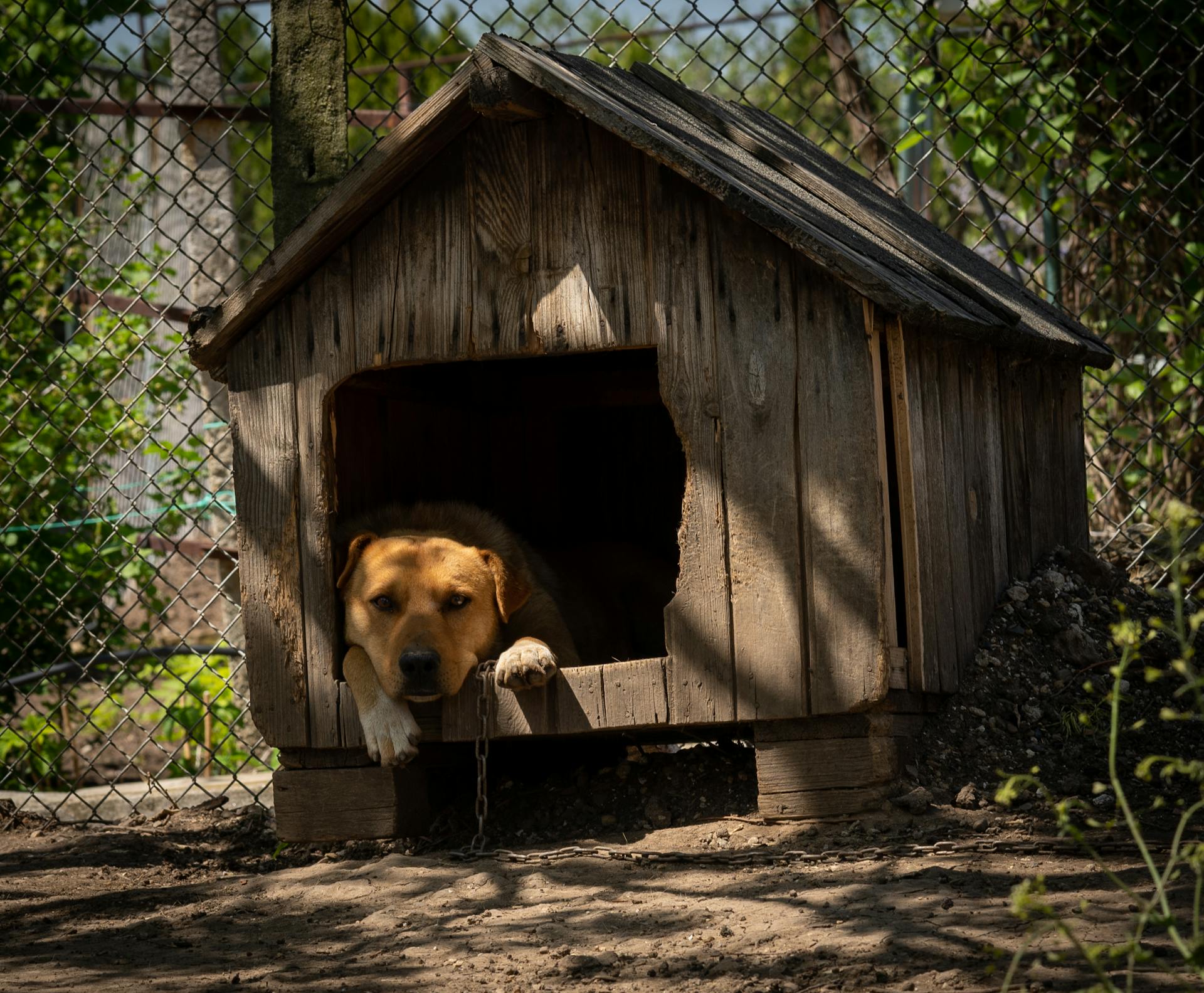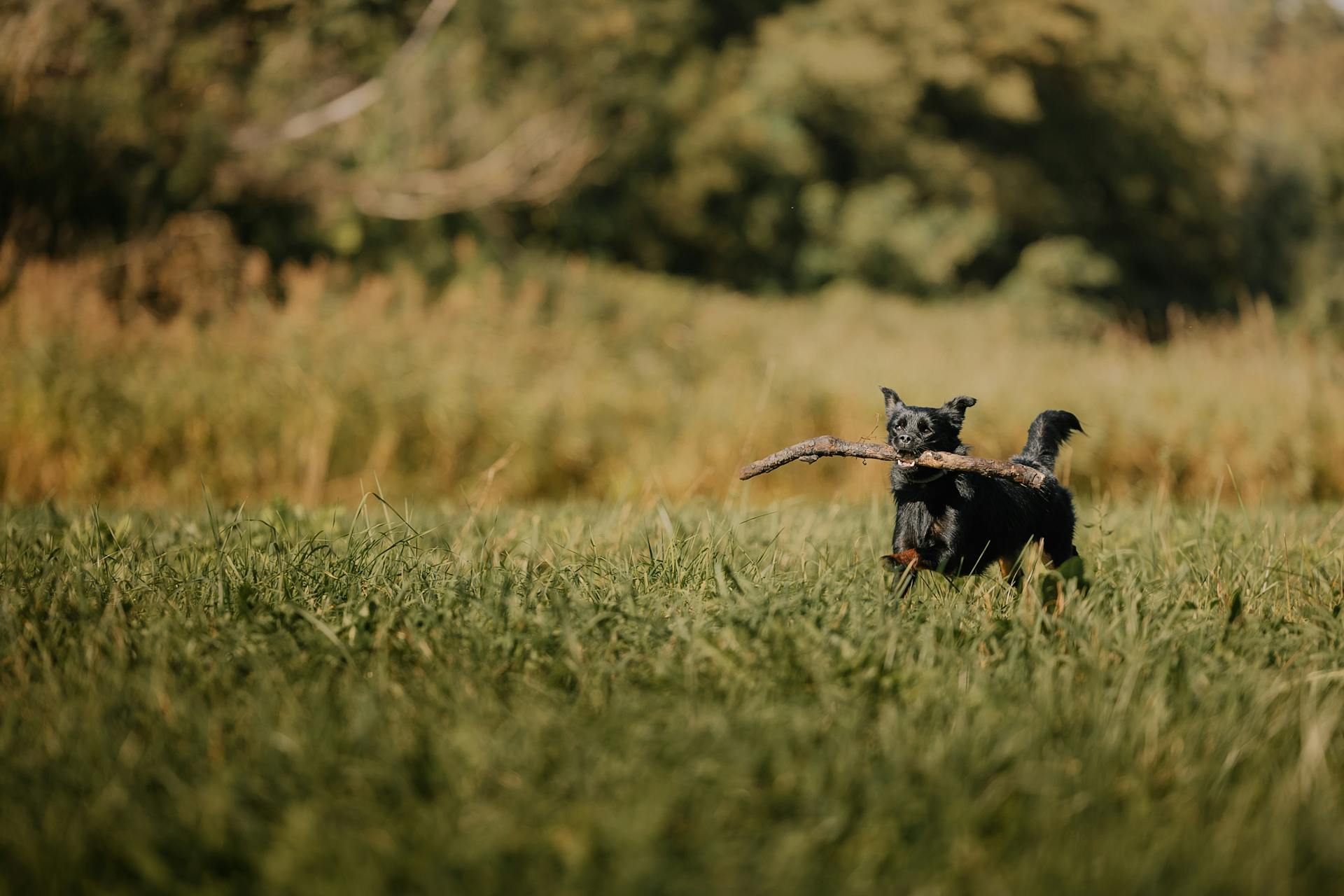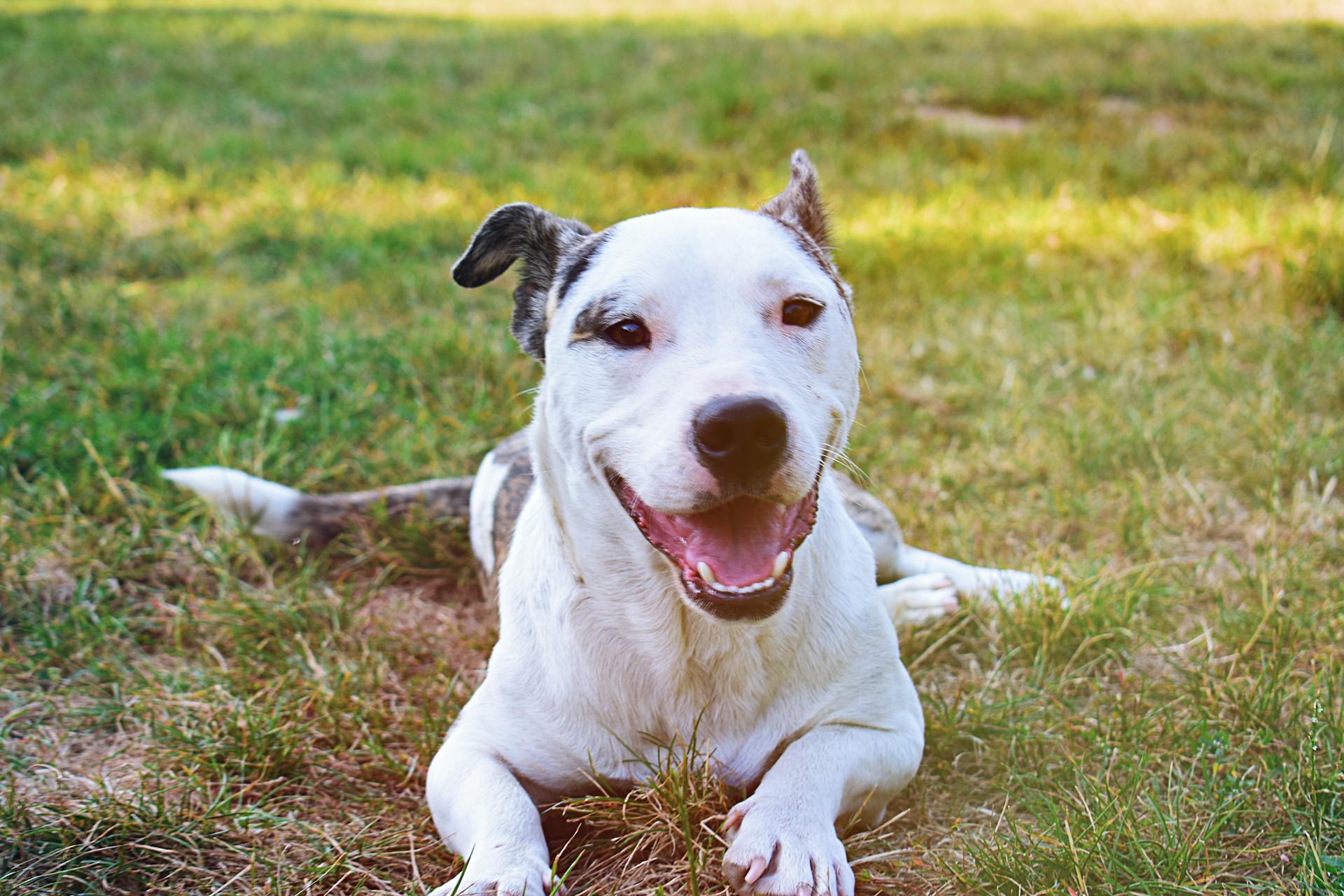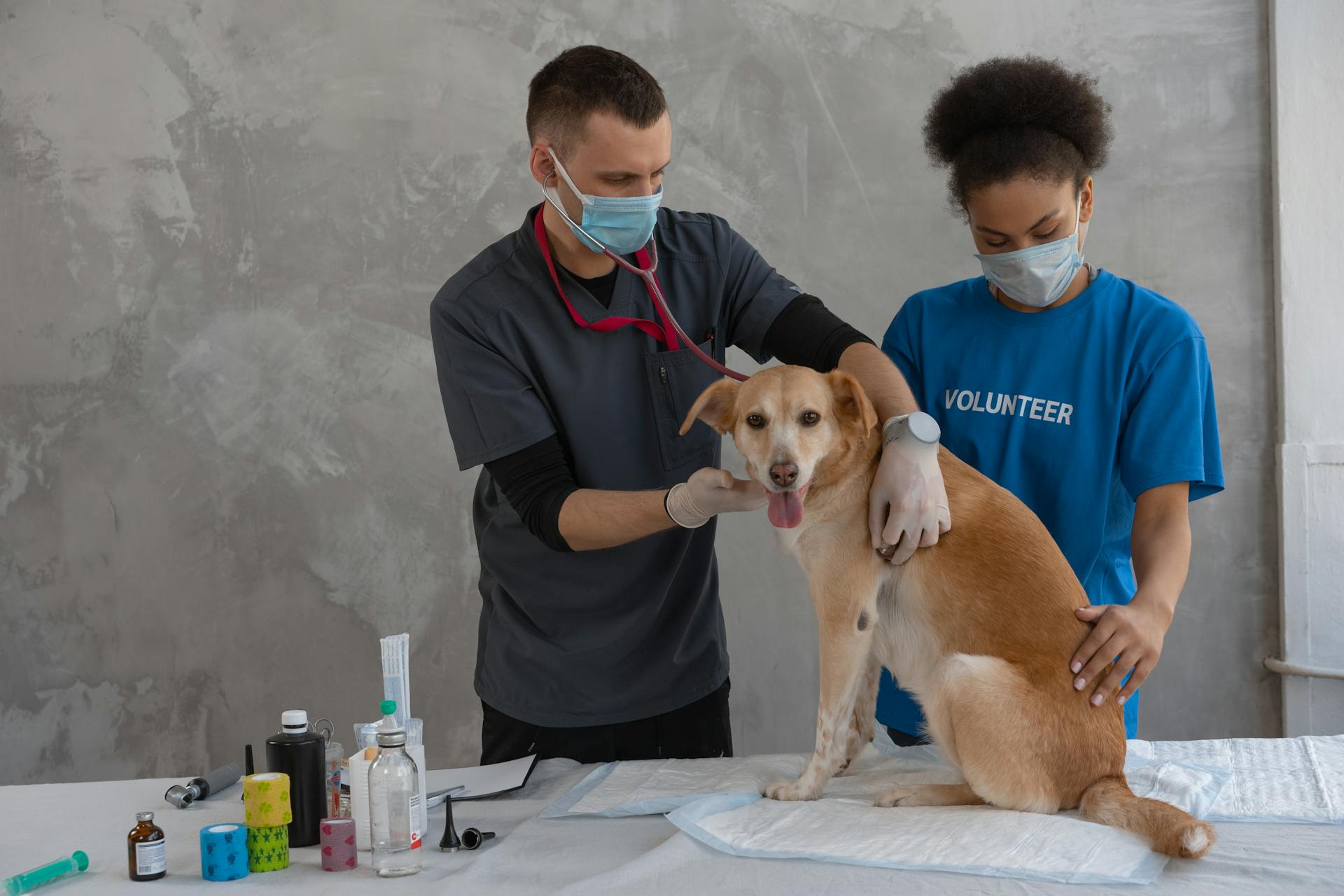
You're probably wondering if your furry friend can get kennel cough at home. The answer is yes, it's possible for a dog to contract kennel cough at home, even if they're not in a kennel. This is because kennel cough, also known as canine infectious tracheobronchitis, is highly contagious and can be spread through the air when an infected dog coughs or sneezes.
Dogs can get kennel cough from other dogs, even if they're just in the same household. If you have multiple dogs at home and one of them has kennel cough, the others are at risk of getting it too.
The symptoms of kennel cough can be quite mild, but they can also be severe and even life-threatening in some cases.
What is Kennel Cough?
Kennel cough is a highly contagious respiratory disease in dogs that can cause a dry, hacking cough, often sounding like a honk or a sharp, puffing cough that won't stop.
Dogs can develop kennel cough approximately two to 14 days after exposure, typically in places like boarding facilities, dog parks, or doggy daycares where they're surrounded by other dogs.
Kennel cough is spread through droplets or direct contact with the bacteria, whether it's inhalation, touching noses, or sharing food or water bowls.
The disease is caused by a complex of respiratory infections, both viral and bacterial, that inflames a dog's windpipe, large airways, and sometimes lungs, making it similar to a chest cold in humans.
If your dog is experiencing kennel cough, they may act completely normal besides the cough itself, but in some cases, it can progress to life-threatening pneumonia, especially if they're showing signs of lethargy, loss of appetite, fever, or a greenish-yellow discharge from their nose.
How Does Kennel Cough Spread?
Kennel cough is highly contagious and can spread quickly in areas where dogs congregate.
Dogs commonly contract kennel cough at places like boarding kennels, dog daycare facilities, dog parks, dog training groups, and dog shows.
You can also pick up kennel cough at your local dog-friendly brewery or cafe, where dogs are often present.
Dogs can spread kennel cough to one another through airborne droplets, direct contact, or contaminated surfaces.
Contaminated surfaces can include water or food bowls, making it essential to keep these areas clean.
Prevention and Vaccination
Vaccination against kennel cough is available and recommended for dogs frequently exposed to groups of dogs, such as those in boarding, daycare, or competitive sports.
The vaccine is available in oral, intranasal, and injectable forms, and typically requires two doses two to four weeks apart, followed by a booster every six months to a year. It's usually required by many training, boarding, and daycare facilities.
While the vaccine is not 100% effective, it can help reduce the severity of symptoms in vaccinated dogs. Some breeds with compromised airways may benefit from a stronger immune response that the vaccine provides.
Here are some common causes of kennel cough and how it's typically spread:
- Bordetella bronchiseptica bacteria
- Canine adenovirus
- Parainfluenza virus
- Mycoplasma
- Canine influenza virus
- Canine distemper virus
- Canine respiratory corona virus
- Canine reovirus
Dogs can contract kennel cough from infected objects or through coughing or sneezing of an infected dog.
Causes

Kennel cough in dogs can be caused by multiple bacteria and viruses, including Bordetella bronchiseptica bacteria, canine adenovirus, parainfluenza virus, Mycoplasma, canine influenza virus, canine distemper virus, canine respiratory corona virus, and canine reovirus.
These pathogens can be spread through respiratory secretions, such as coughing or sneezing, or by coming into contact with infected objects like shared toys or food bowls.
Dogs are often exposed to kennel cough in crowded areas like animal shelters, boarding kennels, dog daycare facilities, grooming facilities, and dog parks.
Some of the most common causes of kennel cough include:
- Bordetella bronchiseptica bacteria
- Canine adenovirus
- Parainfluenza virus
- Mycoplasma
- Canine influenza virus
- Canine distemper virus
- Canine respiratory corona virus
- Canine reovirus
Dogs can contract kennel cough from even brief exposures to infected dogs, making areas with poor ventilation and repeated exposure, like kennels or shelters, particularly high-risk.
Prevention and Vaccination
A kennel cough vaccine is available to inoculate dogs against the bordetella bacterium, the most common cause of kennel cough. It's usually given in two doses two to four weeks apart, followed by a booster every six months to a year.

Many training, boarding, and daycare facilities require proof of vaccination. This is a good reason to get your dog vaccinated, especially if they're frequently boarded or visit dog daycare.
The vaccine is available in oral, intranasal, and injectable forms. Depending on the form, the vaccine can be given without a needle.
While the bordetella vaccine may not prevent all cases of kennel cough, it can help reduce the severity of symptoms. This is especially important for dogs with compromised airways, such as brachycephalic breeds.
Some pet owners may choose to skip vaccinating for kennel cough if their dog never has exposure to other dogs. However, the vaccine comes in many forms, including an oral liquid that's easy to administer.
It's worth noting that fully vaccinated dogs can still get kennel cough. However, vaccination is still an important preventative measure to take.
Related reading: How Long Does the Kennel Cough Vaccine Last
Symptoms and Diagnosis
Symptoms of kennel cough can be mild or severe, but the most common symptom is a dry, hacking cough that sounds like the dog is retching. This cough can be triggered by massaging the dog's larynx or trachea.
Additional symptoms include sneezing, runny nose, loss of appetite, decreased energy level, conjunctivitis, hacking, wheezing, and depressed behavior. If your dog is showing signs of a fever, rapid breathing, or refusal to eat or drink, seek veterinary attention right away.
In most cases, kennel cough is not serious and resolves on its own within one to two weeks. However, it can be more severe for puppies, senior dogs, or dogs with underlying health conditions.
Symptoms and Behaviors
The most common symptom of kennel cough is a loud, hacking cough that sounds like the dog is retching or honking.
Dogs with kennel cough may also sneeze, have a runny nose, and lose their appetite.
The incubation period for kennel cough is between two and 10 days, with most dogs showing symptoms within two to three days.
Some dogs may develop conjunctivitis, a hacking cough, or wheezing, in addition to the characteristic dry-sounding cough.

If your dog has nasal discharge, is breathing rapidly, refuses to eat, or seems lethargic, seek veterinary attention right away.
The cough can be triggered by massaging the dog's larynx or trachea, and can be described as dry and hacking.
Dogs with severe kennel cough may have a fever, trouble breathing, and appear tired.
Here are some common symptoms of kennel cough:
- Coughing
- Sneezing
- Runny nose
- Loss of appetite
- Decreased energy level
- Conjunctivitis (inflammation of the membrane lining the eyelids)
- Hacking
- Wheezing
- Depressed behavior
How to Test
To test for kennel cough in dogs, your veterinarian may perform a physical exam and gather a history of your dog's exposure to the illness.
A physical exam can be a pretty straightforward way to diagnose kennel cough, as it involves massaging your dog's larynx or trachea to elicit the characteristic cough.
If your dog is showing signs of severe symptoms, your veterinarian may want to run additional diagnostic tests to rule out other diseases.
Your veterinarian may also recommend an X-ray or blood test to determine if your dog has developed pneumonia or other complications as a result of kennel cough.
Readers also liked: Kennel Cough Test
Treatment and Recovery
If your dog has kennel cough, treatment will depend on the severity of the condition. For mild cases, treatment may only include supportive care, which focuses on rest, nutrition, and hydration.
Keeping your dog's airways moist is crucial, especially after all that coughing. You can do this by keeping them in the bathroom while you shower, or by adding a humidifier to the room they sleep in.
A cough suppressant may be prescribed by your veterinarian to help reduce the frequency of the cough. This can help your dog feel more comfortable and recover faster.
Some dogs can completely recover on their own with no treatment required, but it's essential to monitor their condition and seek veterinary care if symptoms worsen. It should take about one to two weeks for a dog to recover from a mild case of kennel cough.
In complicated cases, kennel cough can cause your dog to become extremely sick, leading to symptoms like lethargy, loss of appetite, and difficulty breathing. If your dog develops pneumonia, treatment may involve hospitalization, intravenous fluids, antibiotics, and possibly oxygen therapy.
To help your dog recover from kennel cough, it's essential to avoid irritants like household cleaners, cigarette smoke, and dust, which can prolong their recovery. Using a harness instead of a collar and leash during walks can also help reduce pressure on the trachea and prevent coughing.
Suggestion: Dog Acting Strange after Flea and Tick Treatment
Prognosis and Management
Most dogs with kennel cough can recover on their own within 10 days without any treatment. However, if pneumonia is present, more aggressive therapy is required.
Dogs with concurrent respiratory disease, such as a collapsing trachea or upper airway constrictions, have a poorer prognosis.
Brachycephalic dog breeds, like pugs, bulldogs, and Boston terriers, need more aggressive treatment due to their compromised airway. This makes them more prone to secondary bacterial infections.
The infectious agent can significantly impact prognosis, and untreated dogs with Streptococcus equi subspecies zooepidemicus can die.
Dogs vaccinated for the CIRD pathogens have a much better prognosis, with vaccination reducing the duration and severity of disease.
If this caught your attention, see: Lyme Disease
Frequently Asked Questions
Can a dog get kennel cough without being around other dogs?
While kennel cough is often associated with dog-to-dog contact, it can also be transmitted through airborne droplets or contaminated objects, making it possible for a dog to get kennel cough without being around other dogs. However, direct contact with an infected dog is still a common transmission route.
How can a dog get kennel cough without being around other dogs?
A dog can get kennel cough through airborne droplets from an infected dog's cough or sneeze, even if they're not in close proximity. Contaminated objects like water bowls or toys can also spread the infection.
Sources
- https://www.akc.org/expert-advice/health/kennel-cough-in-dogs/
- https://www.petmd.com/dog/conditions/respiratory/kennel-cough-dogs-symptoms-and-treatments
- https://callananveterinarygroup.com/what-is-kennel-cough/
- https://www.forbes.com/advisor/pet-insurance/pet-care/kennel-cough-in-dogs/
- https://resources.bestfriends.org/article/kennel-cough-dogs-symptoms-treatments-vaccine
Featured Images: pexels.com


